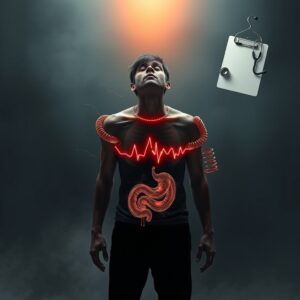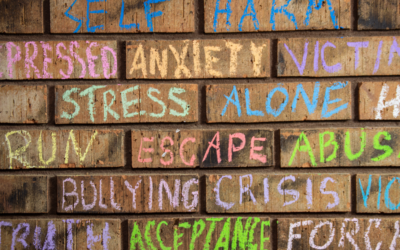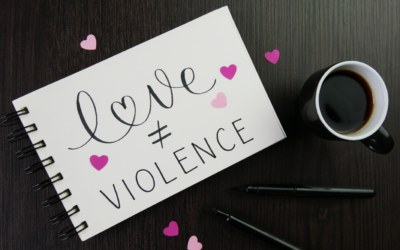Anxiety Unmasked: How to Spot and Tackle the Symptoms Head-On
Anxiety is something everyone feels at times. It’s your body’s natural reaction to stress or danger, but if it happens too often, it can seriously affect your life. If ignored, anxiety can lead to problems with your mental and physical health. The good news is that learning to recognize anxiety symptoms and managing them can help you take control and feel better. In this post, we’ll explore how to identify and deal with anxiety so you can live a happier and healthier life.
Understanding Anxiety

Anxiety is your body’s natural way of warning you about danger or stress. Sometimes, stress can be helpful, like when it helps you stay focused on school or work. But when anxiety happens all the time, it can take over your life and hurt your health. If not addressed, it can lead to problems like generalized anxiety disorder, panic disorder, depression, or substance abuse.
Anxiety isn’t a sign of weakness, and you can’t just “snap out of it.” It’s a complex condition that can come from different causes, like genetics, your environment, or life experiences.
To manage anxiety, developing coping skills is key. These are tools like deep breathing, mindfulness, or relaxation techniques that help reduce how often or intense your anxiety feels. Understanding what makes you anxious can also help you handle it better. This might include finding new ways to face certain situations or challenging negative thoughts.
Most importantly, anxiety can be treated and managed. With the right tools, support, and resources, you can take control of your anxiety and live a happier, healthier life.
Common Symptoms of Anxiety

Anxiety can show up in different ways and affect people differently. Some common signs include constant worrying, feeling nervous or irritated, and having trouble concentrating. It can also cause physical problems like tense muscles, feeling tired, or difficulty sleeping.
Another sign of anxiety is avoiding situations that make you uncomfortable. While this might feel helpful at first, it can actually make anxiety worse over time and lead to missing out on important parts of life, like work or social events.
If anxiety is getting in the way of your daily life, it’s important to get help. A mental health professional can create a treatment plan just for you, which might include therapy, medication, or both.
Physical Symptoms

Anxiety doesn’t just affect how you feel emotionally or mentally—it can also impact your body in big ways. Here are some of the most common physical symptoms and what they mean:
Chest Tightness and Difficulty Breathing
Anxiety can make it hard to catch your breath or cause chest pain and tightness, which can feel overwhelming or lead to panic.
Rapid Heartbeat
You might notice your heart racing or pounding in your chest, a common sign of anxiety that can feel very intense.
Muscle Tension and Stiffness
Anxiety can cause your muscles to tighten up, leaving you feeling sore or stiff.
Stomach Problems
This can include nausea, upset stomach, diarrhea, or even constipation caused by stress.
Sweating
Anxiety often activates your body’s stress response, leading to increased sweating even in calm conditions.
Emotional and Behavioral Symptoms

Anxiety can affect your emotions and behavior, making everyday life harder and sometimes causing misunderstandings in relationships. Here are some common emotional and behavioral symptoms of anxiety, with brief explanations:
Excessive Worrying
Constantly worrying about everyday things, even when there’s no reason, and finding it hard to control these thoughts.
Avoiding Social Situations
Feeling nervous or uncomfortable in social settings and choosing to avoid them, like meeting new people or being in a crowd.
Restlessness
Struggling to relax, always feeling on edge, or like you can’t sit still.
Irritability
Getting easily annoyed or frustrated, even with small things.
Panic Attacks
Episodes of intense fear that come on suddenly, often with symptoms like sweating, trembling, chest pain, or a rapid heartbeat.
Obsessive-Compulsive Behaviors
Having constant, unwanted thoughts (obsessions) that lead to repetitive actions (compulsions) as a way to cope.
Perfectionism
Setting unrealistically high standards for yourself and being overly critical when you don’t meet them.
Ignoring anxiety symptoms can make them worse and affect your quality of life. Taking care of your mental health is a vital step toward living a happier and healthier life.
Coping Mechanisms for Anxiety

If you’re dealing with anxiety or an anxiety disorder, there are simple ways to manage your symptoms and feel more in control. These strategies can help lower stress, make you feel calmer, and keep anxiety symptoms from interrupting your daily life.
Practice Mindfulness Meditation
Mindfulness meditation helps you focus on the present moment. Paying attention to your breathing and surroundings can train your mind to stay calm, even in stressful situations. You can find guided meditation videos on sites like YouTube.
Engage in Physical Activity
Exercise is a great way to ease anxiety. Activities like jogging, yoga, or tai chi can reduce tension and help you feel better both physically and emotionally.
Use Relaxation Techniques
Deep breathing, muscle relaxation, and visualization are techniques that can calm your mind and body. You can learn these online or talk about them with a therapist.
Practice Self-Care
Taking care of yourself is key. Eating healthy, staying hydrated, and doing activities you enjoy can lower stress and improve your mood.
Learn About Triggers
Try to figure out what situations make you anxious and learn how to handle them. Using relaxation techniques, changing negative thoughts, and carefully facing those situations can make a big difference.
Everyone experiences anxiety differently, so it’s important to find what works best for you. If your symptoms continue or worsen, don’t hesitate to reach out for professional help. Therapists and counselors can provide extra tools and support to help you feel better.
Seeking Professional Help for Anxiety

If you’re feeling anxious, there are self-help strategies you can try, but sometimes it’s a good idea to get professional help. Talking to a mental health expert like a therapist or psychiatrist can provide the guidance and support you need.
Finding the right professional is important. Look for someone who has experience with anxiety disorders. You can ask friends or family for recommendations or search online for therapists or psychiatrists nearby.
Once you connect with a professional, they can work with you to create a treatment plan that fits your needs. This could include therapy, medication, or both. Many people find cognitive behavioral therapy (CBT) helpful because it focuses on changing the negative thought patterns that often come with anxiety.
Remember, reaching out for help is a sign of strength, not weakness. Mental health problems are just as real as physical health problems, and getting treatment is key to feeling better overall. You might also want to join a support group for anxiety. These groups give you a safe space to share your experiences, learn from others, and receive encouragement.
Managing anxiety takes time, but asking for help is an important first step. Don’t hesitate to reach out—it could make a big difference in your life.










